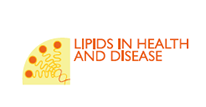A Tersus Life Sciences sponsored study protocol has been published in the Frontiers of Endocrinology

A sponsored study protocol by Tersus Life Sciences was recently published in the Frontiers of Endocrinology journal titled: Protocol for a randomized placebo-controlled clinical trial using pure palmitoleic acid to ameliorate insulin resistance and lipogenesis in overweight and obese subjects with prediabetes.
Burak Awarded $2.5M Tersus Life Sciences and NORCH Research Grants

Mehmet Furkan Burak, MD, of the Division of Endocrinology, Diabetes and Hypertension, was awarded a $2.5 million research grant from Tersus Life Sciences for his clinical trial on the effects of pure palmitoleic acid on insulin sensitivity and lipogenesis, the formation of fat cells. He also received competitive renewal for a grant from the Nutrition Obesity Research Center at Harvard (NORCH), funding his research project “Identification of Immunometabolism Alterations in Adio-pulmonary Axis to Treat Obesity-Related Asthma.”
Burak’s clinical trial will be the first translation to human studies of his lab’s findings that palmitoleic acid, an omega-7 fatty acid, acts as a lipokine, improving insulin sensitivity and decreasing ectopic fat accumulation. His NORCH-funded research project on obesity-associated asthma investigates adipose tissue-related factors of immune cell metabolism. Read More…
Clinical Trial | Monounsaturated Fatty Acid Supplementation for Overweight and Obese Individuals With Prediabetes

The purpose of this study is to understand and determine whether Palmitoleic acid (POA), monounsaturated omega-7 fatty acid (exists in regular diet), improves insulin sensitivity and decreases liver fat accumulation in humans. Unlike others, the study will use POA as a dietary supplement, rather than complex oils, which contain a significant amount of saturated fat palmitic acid. Palmitic acid has known harmful effects on the body. Hence, eliminating palmitic acid from supplementation of POA might increase its benefits. This trial stems from the preclinical discoveries that POA acting as a fat hormone, has beneficial effects on the liver, muscle, vessels, and fat tissue. Supporting this, higher POA levels in humans have been shown to be correlated with a reduced risk of developing type-2 diabetes and cardiovascular diseases such as heart attacks. In animals, it has been observed that POA improves sugar metabolism in a number of mechanisms related to the liver and muscle. Based on these findings, the design of this study is a double-blind placebo-controlled trial that tests the effects of POA on insulin sensitivity of overweight and obese adult individuals with pre-diabetes. Read More…
Can a Fatty Acid Supplement Improve Outcomes in Obese People?
![]()
Obesity is a vast and growing health problem that negatively affects many systems in the body. It also increases the risk of diabetes, fatty liver disease, and cardiovascular disease, among other conditions.
Investigators at Brigham and Women’s Hospital are now looking at novel ways to boost the natural mechanisms that the body uses to counteract the development of obesity and its related complications. An upcoming clinical trial will explore whether dietary supplementation with palmitoleic acid (POA)—a monounsaturated fatty acid that is released by fat tissue during the metabolic process and part of the modern diet—can enhance key health measures in individuals who are obese and prediabetic. Read more…
Identification of a Lipokine, a Lipid Hormone Linking Adipose Tissue to Systemic Metabolism

Chronic administration of palmitoleic acid reduces insulin resistance and hepatic lipid accumulation in KK-Ay Mice with genetic type 2 diabetes … Studies have demonstrated the beneficial effect of palmitoleic acid (C16:1n7) on reducing muscle insulin resistance and preventing beta-cell apoptosis. However, the effect of palmitoleic acid on diabetes remains to be elucidated. The aim of this study was to examine the antidiabetic effect of palmitoleic acid in KK-Ay mice, a spontaneous model for studies of obese type 2 diabetes with low insulin sensitivity. Read more …
Distinct Effects of Saturated and Monounsaturated Fatty Acids on β-Cell Turnover and Function

Distinct Effects of Saturated and Monounsaturated Fatty Acids on β-Cell Turnover and Function … Glucotoxicity and lipotoxicity contribute to the impaired-cell function observed in type 2 diabetes. Here we examine the effect of saturated and unsaturated fatty acids at different glucose concentrations on -cell proliferation and apoptosis. Read more …
Circulating Palmitoleate Strongly and Independently Predicts Insulin Sensitivity in Humans

Circulating Palmitoleate Strongly and Independently Predicts Insulin Sensitivity in Humans … suggesting that it plays an important role in the pathophysiology of insulin resistance in humans. Read more …
Purified palmitoleic acid for the reduction of high-sensitivity C-reactive protein and serum lipids: A double-blinded, randomized, placebo controlled study
Adam M. Bernstein, MD, ScD, Michael F. Roizen, MD, Luis Martinez, MD, MPH
Purified palmitoleic acid (c16-1n7; omega-7) has shown lipid-lowering and anti-inflammatory benefits in open label, epidemiologic, and animal studies. Read more…
Palmitoleic acid reduces intramuscular lipid and restores insulin sensitivity in obese sheep

Susan K Duckett, Gabriela Volpi-Lagreca, Mariano Alende, Nathan M Long
Obese sheep were used to assess the effects of palmitoleic (C16:1 cis-9) acid infusion on lipogenesis and circulating insulin levels. Infusion of 10 mg/kg body weight (BW)/day C16:1 intravenously in obese sheep reduced (P,0.01) weight gain by 77%. Serum palmitoleic levels increased (P,0.05) in a linear manner with increasing levels of C16:1 infusion. Cis-11 vaccenic (C18:1 cis-11) acid, a known elongation product of palmitoleic acid, was also elevated (P,0.05) in serum after 14 days and 21 days of infusion. Read more…

>“Palmitoleic Acid (PA) Outperforms EPA in Identical KK-Aʸ Mouse Study Regarding Effects on Triglyceride Levels and Weight Gain” Read more…
Trans-Palmitoleic Acid, Metabolic Risk Factors, and New-Onset Diabetes in U.S. Adults, A Cohort Study
Dariush Mozaffarian, MD, DrPH; Haiming Cao, PhD; Irena B. King, PhD; Rozenn N. Lemaitre, PhD, MPH; Xiaoling Song, PhD; David S. Siscovick, MD, MPH; and Go¨ khan S. Hotamisligil, MD, PhD
“Circulating trans-palmitoleate is associated with lower insulin resistance, presence of atherogenic dyslipidemia, and incident diabetes.” Read more…
Effects of eicosapentaenoic acid on the early stage of type 2 diabetic nephropathy in KKAy/Ta mice: involvement of anti-inflammation and antioxidative stress
Minfang Zhanga, Shinji Hagiwaraa, Masukazu Matsumotoa, Leyi Gub, Mitsuo Tanimotoa, Shinji Nakamuraa, Shigeru Kanekoa, Tomohito Gohdaa, Jiaqi Qianb, Satoshi Horikoshia, Yasuhiko Tominoa
“Eicosapentaenoic acid (EPA) has been reported to have beneficial effects on the progression of various renal diseases including diabetic nephropathy; however, the precise mechanisms are not completely understood.” Read more…
Chronic administration of palmitoleic acid reduces insulin resistance and hepatic lipid accumulation in KK-Ay Mice with genetic type 2 diabetes
Zhi-Hong Yang, Hiroko Miyahara and Akimasa Hatanaka
“Studies have demonstrated the beneficial effect of palmitoleic acid (C16:1 n-7) on reducing muscle insulin resistance and preventing beta-cell apoptosis. However, the effect of palmitoleic acid on diabetes remains to be elucidated. The aim of this study was to examine the antidiabetic effect of palmitoleic acid in KK-Ay mice, a spontaneous model for studies of obese type 2 diabetes with low insulin sensitivity.” Read more…


